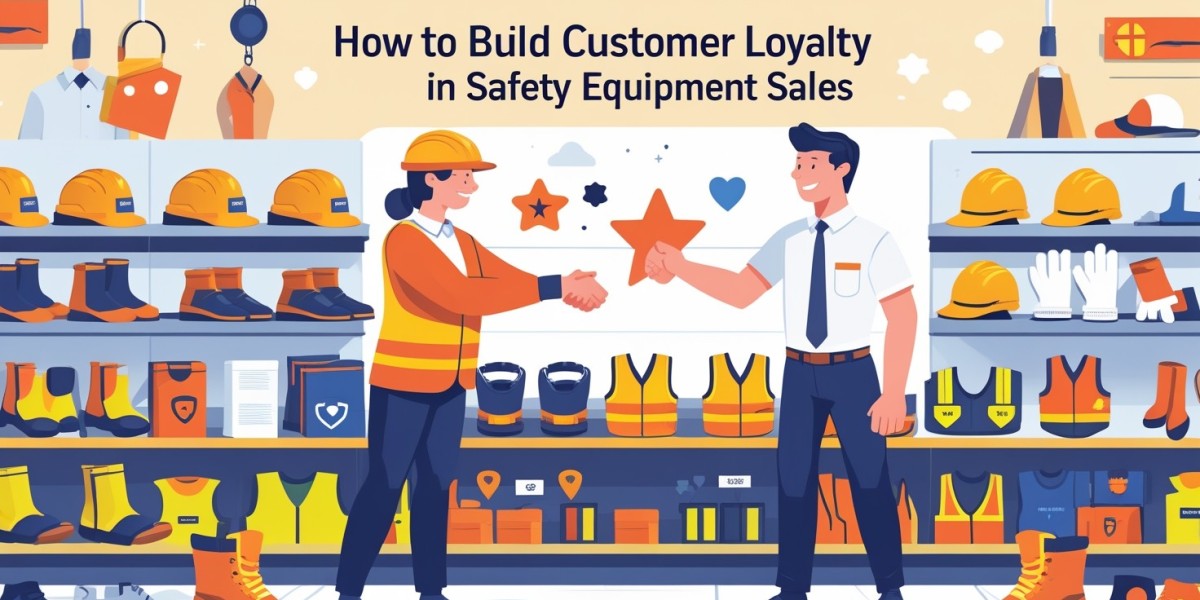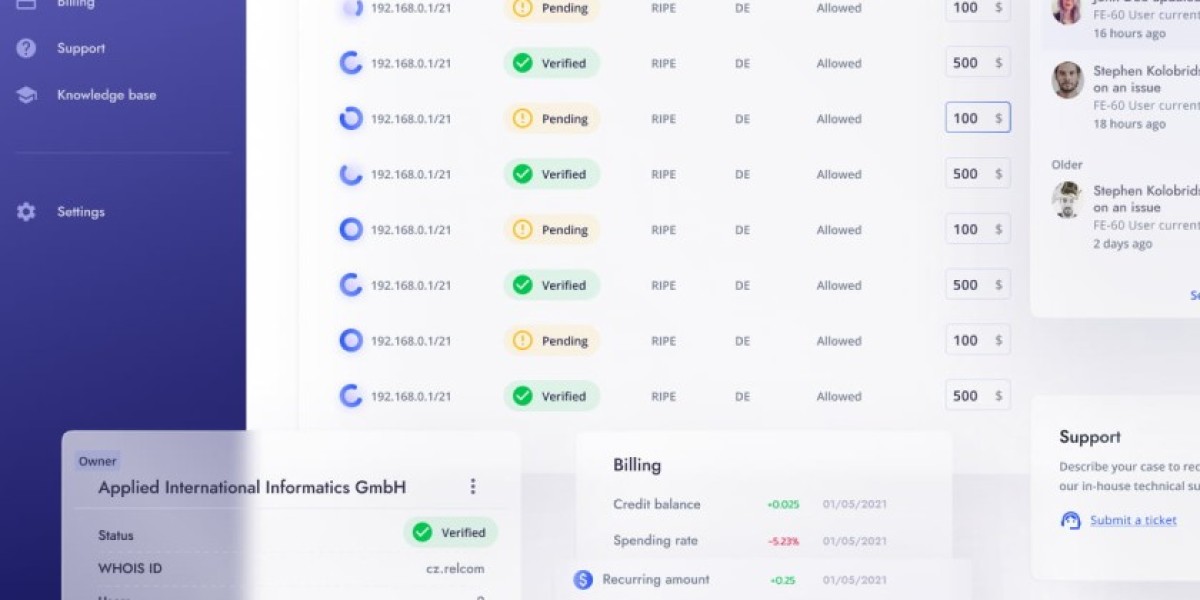In a highly competitive industry like safety equipment sales, customer loyalty can be the key differentiator between a thriving business and one that struggles to retain clients. Safety equipment is not just another product—it plays a vital role in the well-being and protection of workers across various industries. Building lasting relationships with your customers ensures repeat business, positive word-of-mouth, and a reputation built on trust and reliability.
Below are the top strategies for fostering strong customer loyalty in the safety equipment industry:
1. Provide Exceptional Product Knowledge and Expertise
Why it matters:
Customers in this industry rely on suppliers who can provide them with the correct safety solutions for their unique needs. They value knowledge and trust expertise.
How to implement it:
Train your sales team to become true product experts. They should understand the specifications, standards (such as ANSI, OSHA, ISO), and applications of each piece of safety equipment. This allows your team to offer consultative support instead of just transactional service.
2. Offer High-Quality and Certified Safety Products
Why it matters:
Customers need products that meet or exceed compliance and safety standards. Low-quality products can compromise worker safety and erode trust.
How to implement it:
Partner with reputable manufacturers, and ensure your stock only includes equipment that is certified and thoroughly tested. Regularly update your inventory with the latest compliant and innovative products in the market.
3. Build a Customer-Centric Buying Experience
Why it matters:
Customers are more likely to return to a business where they felt valued, understood, and supported throughout their buying journey.
How to implement it:
Create an easy, efficient, and personalized buying experience—both online and offline. Offer multiple communication channels (phone, email, chat), provide quick quotes, and ensure your website is mobile-friendly and intuitive.
4. Invest in After-Sales Support and Services
Why it matters:
Loyalty doesn’t end at the point of sale. Continued support shows that you care about their long-term safety and satisfaction.
How to implement it:
Provide installation support, periodic equipment checks, maintenance services, and reminders for re-certification. Implement a follow-up system to ask about product performance and satisfaction.
5. Build Relationships, Not Just Transactions
Why it matters:
Customers prefer dealing with familiar and trustworthy people over faceless corporations. Relationships drive long-term loyalty.
How to implement it:
Assign dedicated account managers, send personalized thank-you notes, celebrate milestones (like customer anniversaries), and stay in touch through regular check-ins. Build rapport with decision-makers and safety officers.
6. Create a Loyalty Rewards or Referral Program
Why it matters:
Incentivizing repeat purchases and referrals gives customers a tangible reason to stay with your brand and promote it to others.
How to implement it:
Offer points for every purchase that can be redeemed for discounts or free products. Introduce a referral program where clients receive rewards for bringing in new customers. Make sure the program is easy to understand and accessible.
7. Deliver Consistent and On-Time Service
Why it matters:
Reliability builds trust. Customers who know they can count on you are less likely to look elsewhere.
How to implement it:
Maintain strong inventory control, streamline your logistics and delivery processes, and communicate clearly about lead times. If delays occur, be transparent and proactive in resolving them.
8. Offer Customized Solutions
Why it matters:
Different industries and workplaces have different safety requirements. Tailored solutions show that you understand their specific challenges.
How to implement it:
Conduct site visits, provide risk assessments, and customize product bundles or packages that suit the customer's operations. Use feedback to constantly refine your offerings.
9. Educate Your Customers Continuously
Why it matters:
Education strengthens trust and positions your brand as an authority in safety.
How to implement it:
Host webinars, write blogs, create product videos, and send newsletters about the latest safety regulations, trends, and best practices. Offer free safety audits or training sessions as value-add services.
10. Use Feedback to Improve Constantly
Why it matters:
Listening to your customers and acting on their input shows that you value their opinions, leading to greater loyalty.
How to implement it:
Send out surveys after each purchase, encourage reviews, and be active on social media and customer service channels. Share what improvements you've made based on their suggestions.
11. Offer Competitive Pricing with Value Additions
Why it matters:
While price isn’t everything, offering the best value for money is crucial in a competitive market.
How to implement it:
Bundle products with services such as training or maintenance. Offer flexible payment plans or price matching. Make sure customers understand what they're getting for the price they're paying.
12. Stay Updated with Industry Trends and Regulations
Why it matters:
Being ahead of the curve helps you anticipate customer needs and provide proactive solutions.
How to implement it:
Follow regulatory updates, attend industry expos, and network with safety professionals. Inform customers of new safety standards and offer compliant products before they even ask.
13. Maintain Transparency and Integrity
Why it matters:
Trust is the foundation of loyalty. Being honest about product limitations, pricing, and service timelines reinforces that trust.
How to implement it:
Avoid overselling, be upfront about availability and timelines, and acknowledge mistakes quickly. Always deliver on your promises—or exceed them.
14. Utilize CRM Systems to Track and Enhance Loyalty
Why it matters:
Customer Relationship Management (CRM) tools help you organize interactions and identify loyalty opportunities.
How to implement it:
Use CRM software to track buying history, preferences, and support tickets. Personalize marketing efforts based on past behavior, and set reminders for follow-ups or product renewals.
15. Leverage Social Proof and Case Studies
Why it matters:
Hearing about positive experiences from peers builds confidence in your brand.
How to implement it:
Showcase testimonials, reviews, and case studies from satisfied customers. Feature real-world examples of how your safety equipment prevented accidents or improved compliance.
16. Be Active in Your Local and Industry Communities
Why it matters:
Community engagement humanizes your brand and builds recognition outside of traditional marketing.
How to implement it:
Sponsor local safety events, support industry organizations, participate in safety week campaigns, or donate to causes related to workplace safety.
17. Respond Promptly and Effectively to Issues
Why it matters:
How you handle problems can make or break a customer relationship.
How to implement it:
Empower your customer service team to resolve issues quickly. Have a clear escalation process and offer fair compensation when necessary. Follow up after resolution to ensure customer satisfaction.
18. Offer Subscription or Service Contracts
Why it matters:
Providing long-term service options ensures repeat business and enhances perceived value.
How to implement it:
Create equipment inspection or calibration plans, PPE restocking subscriptions, or annual safety equipment reviews. These help customers stay compliant while locking in loyalty.
19. Make Your Brand Memorable and Trustworthy
Why it matters:
A consistent and reputable brand identity builds recognition and trust.
How to implement it:
Design professional packaging, maintain a clean and functional website, keep branding consistent across channels, and reflect your safety commitment in all communications.
20. Encourage and Reward Online Engagement
Why it matters:
Digital touchpoints help keep your brand top of mind and reinforce loyalty.
How to implement it:
Encourage customers to share photos of your products in use, tag your business in safety tips, or leave reviews. Offer social media contests or recognition for loyal customers online.
Conclusion
Building customer loyalty in the safety equipment sales industry isn’t just about delivering products—it's about creating a holistic, trust-filled relationship with your clients. By focusing on product quality, exceptional service, personalization, and ongoing support, you can transform one-time buyers into lifelong customers. In an industry where safety is paramount, showing your customers that you care deeply about their well-being and success will always set you apart.
Frequently Asked Questions (FAQs)
1. Why is customer loyalty important in safety equipment sales?
Customer loyalty ensures repeat business, positive referrals, and long-term partnerships. Loyal customers also trust your expertise, making them more receptive to new product recommendations.
2. How can I encourage repeat purchases from my safety equipment customers?
Implement a loyalty program, offer subscription services, and follow up regularly to remind customers of product maintenance, renewals, or new product launches.
3. What role does after-sales support play in building loyalty?
After-sales support demonstrates that you care about the customer’s continued safety and satisfaction, fostering trust and encouraging them to return for future purchases.
4. Can digital tools help in maintaining customer loyalty?
Yes, CRM tools, email automation, social media engagement, and personalized offers help nurture relationships and improve the overall customer experience.
5. How do I know if my customer loyalty efforts are working?
Track repeat purchase rates, customer satisfaction surveys, net promoter scores (NPS), and the number of referrals you receive to gauge loyalty performance.







